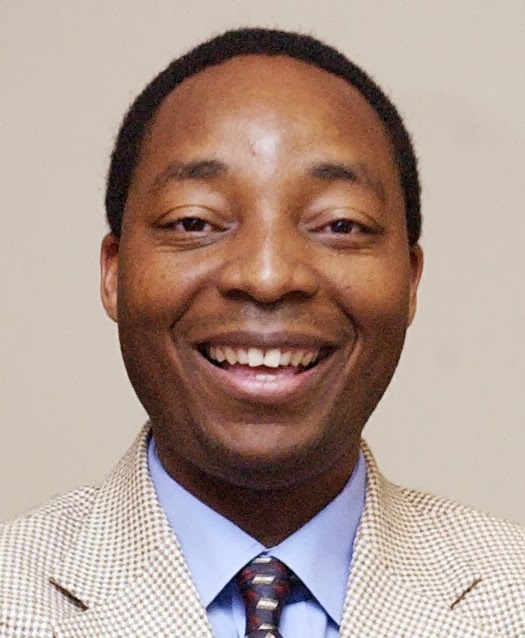Of this there’s no doubt: Jethro Goko isn’t easily
persuaded. Or intimidated.
 |
| Jethro Goko |
When Zimbabwe’s fiercely-independent Daily News’ printing
presses were blown up in 2001 and then banned by Robert Mugabe’s
administration in 2003, many thought
that would be end of the legendary paper with its bold claim of ‘telling it
like it is’. Not so. Though Jethro, who had been on the paper's board, had moved to South Africa to take up senior editorial roles at Avusa
(now Times Media), he continued a legal battle to regain the paper's license to publish. When that was finally granted in 2009, he refined his business
plan and relaunched the newspaper in March 2011.
During much of that period, Jethro made regular trips to Preston
for seminars and workshops offered by the Journalism Leaders Programme at UCLan. This past summer, which also coincided with
Mugabe's latest election victory, Jethro doggedly wrapped up his dissertation research and will today [04/12/2013] be
earning his Master of Arts in Journalism Leadership with Merit.
It’s been quite a journey for Jethro and we wanted to find out just why he undertook it - and what he takes away from it. In this
email exchange with the programme's founding director François Nel (also originally
from Zimbabwe) Jethro, well, tells it like it is.
FN Typically, media executives consider that they can learn all
they need to know from the person ahead of them on corporate ladder and by keeping
an eye on their direct competitors. Why
did you do it?
JG I chose to participate in the Journalism Leaders Programme
because it offered me almost everything that I was looking for at the time, for
my continued professional growth, after more than two decades in journalism [ed note: including roles as deputy editor of Business Day and editor-in-chief of The Herald and Weekend Post] .
FN The programme has non-academic routes for those who just
want to attend residential sessions, as well as an academic route with exit
points at postgraduate certificate, post graduate diploma and Master of Arts
levels. Why did you keep going to the end - including writing a research
dissertation - even though you already have an MBA degree and had so much going on professionally?
JG In addition to the intellectual stimulation, the programme
presented me with an invaluable opportunity to interact and exchange notes with
other editors and media managers from around the world in a fairly relaxed
setting.
Very crucially too, its thrust was geared towards strategic
new media management, at a time that the 'old' brick and mortar business models
of our industry were showing serious strain everywhere in the world.
The programme also challenged participants to look at how
they managed their newsrooms and businesses more critically and honestly than
the average academic course would otherwise do.
Although initially, my intention was to participate in the
programme only for the first few core courses, those first three residential
gatherings in that first year were so stimulating and beneficial that I was
compelled to continue with the rest of the programme. While my MBA studies had
been very useful in honing my overall business and analytical skills, the JLP
programme zeroed in on my area of interest -- media strategies, and
specifically new media trends, challenges and opportunities -- all of which
proved invaluable in my work with my then employer as well as when I later
branched out on my own.
FN How would you
summarise your JLP experience?
JG I am so glad that I participated in the
programme. It is relaxed, yet both challenging academically and very nicely
practical at the same time, a balance that is often lacking in programmes of
this nature. To that extent, it was by far the most enjoyable, relevant and
beneficial course I've ever participated in.
FN What advice do you
have for media company executives who have balance short-term demands of
delivering shareholder value with the need to grows the talent they required to
innovating their business?
JG My advice to pressurised media executives is to
think long-term rather than short-term when it comes to looking after their
most valuable resource -- their people. Even though sending their staff to
participate in this kind of course may look relatively expensive in the
short-term, it will have lasting long-term benefits.
It also ensures that their editors and managers are
well-equipped to handle the stresses that are so much a part of managing in our
industry these days. In our often surprisingly insular industry, this programme
undoubtedly broadens both experiences and perspectives.
- For further lessons for leaders by those transforming the business, download the free Journalism Leadership Insight report.





